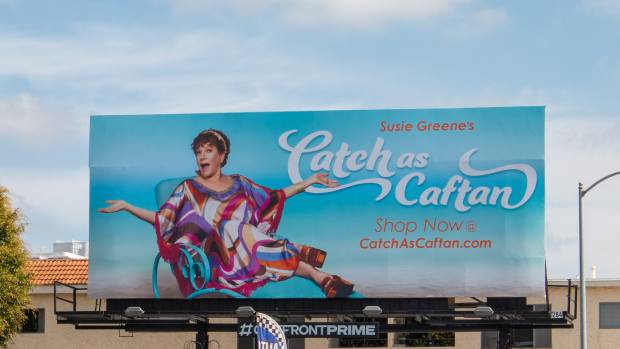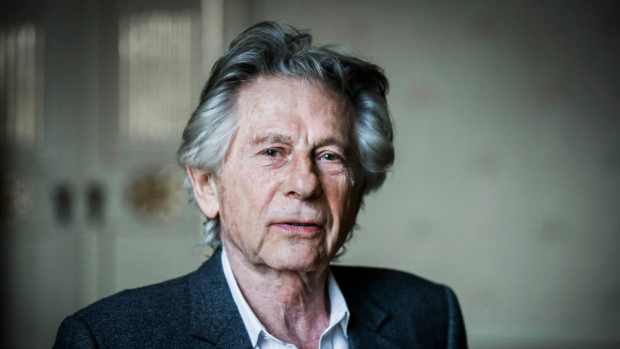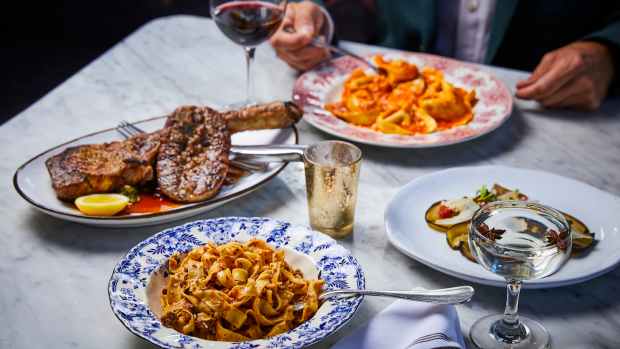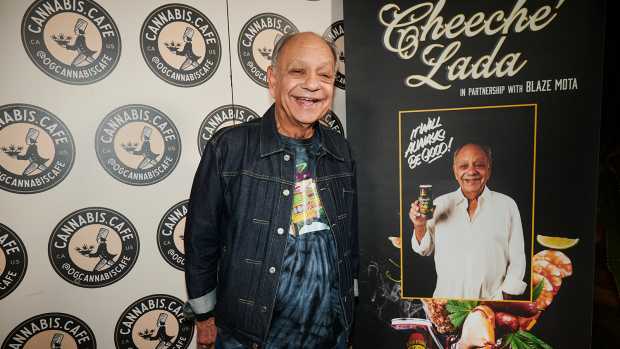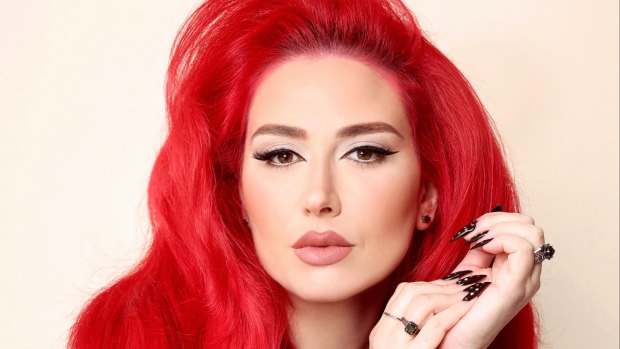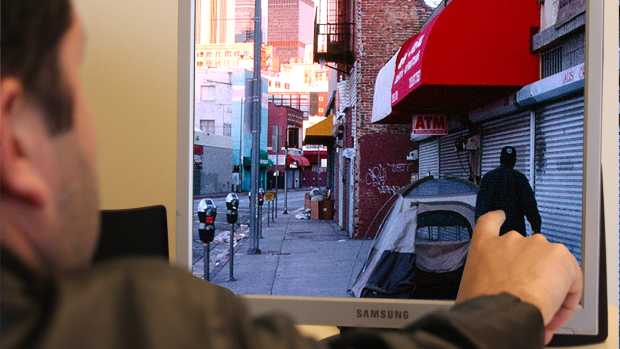Jacob Bernstein Talks Mom Nora Ephron's Life and Passion in his New Film, Everything Is Copy
Writer Nora Ephron passed away in 2012, her death a complete shock to most of her close friends. Ephron hadn't told anyone she had leukemia, and so when she succumbed to the disease, it was the first time many even heard that she was sick.
After her passing, though, Ephron's son Jacob Bernstein decided to continue on with the story of her life. Now a reporter for the New York Times, Bernstein began filming a documentary about his mother's life, from her early years to her dazzling career to later in life as an established screenwriter and director. That documentary became Everything is Copy - Nora Ephron, Scripted & Unscripted, which will premiere on HBO tonight.
Among Ephron's most well-known work is When Harry Met Sally..., Sleepless in Seattle, and the novel Heartburn, which was based on her marriage to Watergate reporter (and Jacob's father) Carl Bernstein. She was known not just for her inimitable wit, but for her sometimes ruthless ambition; Heartburn was written just six months after her split from Bernstein, and documented his philandering in painstaking detail (albeit under the guise of fiction).
Here, the younger Bernstein talks about his fears while making the film, his family's reaction, and why he decided he had to tell the truth about his parents, no matter what.
Are you happy with how the film turned out?
I’m happy with how it turned out. You know, it was over two years of hard work, and I think that’s the thing that was most complicated. It’s the most ambitious thing I’ve done creatively, and I hope it’s the first of several.
You’re a journalist yourself, and now you’re on the other end of it as the subject of these press junkets. What’s that like? Are you getting the same questions over and over?
Some. Some. So you get asked a lot about, “What was the most, what was the biggest…” and it’s sort of…well, the most difficult thing was whatever the difficult thing was at the moment. Certainly it was tricky that not everybody in my family was as gung-ho about my doing this documentary as I was. But it was equally difficult to figure out how I was going to piece into this documentary without it being a misguided, and perhaps narcissistic, attempt by the son of a famous writer to insert himself into the narrative.
What do you mean that your family wasn’t thrilled? Can you say more about that?
My father is in a pretty happy marriage and didn’t particularly feel like having this relived. My brother had a private relationship with my mother; he’s a musician, he’s not a memoirist or a journalist. So you just had people who had all sorts of reasons for why this wasn’t exactly the thing that they wanted to have happen.
But your father seemed so chill in the movie.
I think he did a certain amount of twisting himself up in knots over something that didn’t—you know, I think he overcomplicated.
As journalists are wont to do.
As we are wont to do, as I’m probably doing sitting across from you.
Was there anything that you were scared you might find out about your family over the course of making the film?
I think that I was scared to learn that the divorce was between my parents was sort of exactly as it appeared. I went to see Mike Nichols early on, because I needed advice from people who knew how to make films, and Mike said to me, “Do not do this if you’re not prepared to deal with [the divorce], because because that’s your entry point.” And so that sort of solidified it for me.
What was it that interested you most about your mother’s story? Was it a desire to get to know her on a deeper level, or to get to know her in a new or different way?
What interested me most, in some ways, was what it means to be a writer, and how the personal is becoming public. And this thing that is liberating for one person [means] somebody else is getting swiped. If you look at somebody like Joan Rivers, she was incredibly funny and she was incredibly offensive. There was this mix of bravery and ruthlessness, and I think my mother, in a more subtle way, had that too.
And so I really needed people to be honest enough that all of that would be captured. That you would see that people were admiring of her and a little bit afraid of her, and that ambition is not a dirty word, but it’s also occasionally a little alienating. I wanted the portrait of her to be as rich as it could be; you know, how was I going to manage to do something that honored her without deifying her.
Totally. And to your point about ambition, you did such a nice job of showing that there’s ambition, and there’s success; and where do they meet, and what do they take? Like, when she wrote the takedown piece about her friend, Dorothy Schiff. That was not only ambitious, but it showed that she wasn’t afraid. That’s what sets someone apart; that willingness.
Yes. That’s right. I do think, though, that she did that in a time where it was easier to do that. One of the things that did surprise me was that she made it as far as she did having whacked as many people as she whacked. I think that if you do that now, you quite quickly become…maybe you become TMZ’s door-knocker guy, but you don’t remain in the room with the person. You don’t have access anymore.
We now have these armies of corporate publicists, and people are very well-vetted for the most part. And she lived in a different time and managed to do what she wanted to do without being a diplomat. And that’s really something.
Do you think there was a certain respect that existed then for someone like your mom, who did what she did, at that time that doesn’t exist now?
I think that the press was much more respected then. And I think there were a number of reasons for that, but basically, again, you didn’t have TMZ. You didn’t have a kind of tabloid TV culture. You didn’t have all of these things that somehow just have an effect.
It’s interesting, because we’re talking about the scariest thing about making this movie, but it seems like it’s the most obvious; what’s my family going to think?
Yes. Is this going to be hurtful to my family? And alternatively, if it’s not hurtful to them, did I screw it up?
Oh god. Yeah totally. You made a hard decision, I think.
I think it’s all hard. But by the way, muzzling yourself is hard too. It’s the easier decision in the short run and the harder in the long run.
Is that an idea that you were raised with?
I think that my mother really believed… part of why she saw the affair as such a betrayal is, her father had clearly cheated on her mother, and she saw it as the beginning of a lie that her mother told. My mother wasn’t so thrilled with Hillary Clinton most of the time, and one of the reasons was because she felt that Hilary sublimated a part of who she was to protect Bill Clinton. And she wasn’t gong to do that for my father.
I read Heartburn after a bad breakup, and it’s really – it’s what you want to be in that situation. Your mother wasn’t afraid to say what she said, and if she was afraid, she did it anyway. That’s what you did in this film. If you were afraid to do it, you did it anyway.
I wanted to make a truthful movie that explored not just her narrative, but a little bit about what it means to be a writer. I think every writer grapples with this. Somewhere amidst all of his scotch drinking or whatever F. Scott Fitzgerald was doing when he wrote Tender is the Night, some part of him was thinking about Zelda Fitzgerald and his children.
Everything is Copy - Nora Ephron, Scripted & Unscripted premieres on HBO tonight at 6:00 p.m. EST.

